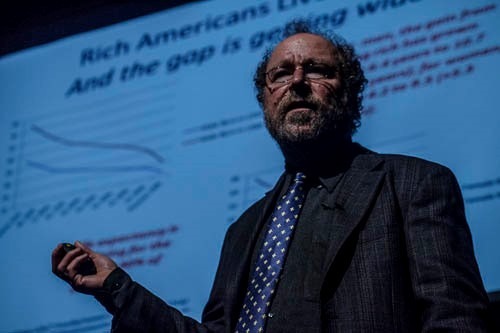July 31, 2013
Upgrading the nation’s Medicare program and expanding it to cover people of all ages would yield over a half-trillion dollars in efficiency savings in its first year of operation, enough to pay for high-quality, comprehensive health benefits for all residents of the United States at a lower cost to most individuals, families and businesses.
That’s the chief finding of a new fiscal study by Gerald Friedman, a professor of economics at the University of Massachusetts, Amherst. There would even be money left over to help pay down the national debt, he said.
Friedman says his analysis shows that a nonprofit single-payer system based on the principles of the Expanded and Improved Medicare for All Act, H.R. 676, introduced by Rep. John Conyers Jr., D-Mich., and co-sponsored by 44 other lawmakers, would save an estimated $592 billion in 2014. That would be more than enough to cover all 44 million people the government estimates will be uninsured in that year and to upgrade benefits for everyone else.
“No other plan can achieve this magnitude of savings on health care,” Friedman said. More

